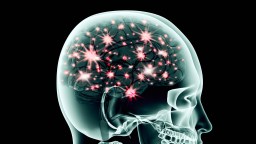Memory and the benefits of forgetting

- We tend to think that forgetting is a “glitch” in our memory system.
- However, forgetting the details of past events can be beneficial when it allows us to flexibly and creatively plan for future events.
- When we do want to remember the details, we need to tap into the four principles of learning.
Do you wish you could simply take a pill and have the superpower to remember everything? Given the extensive marketing of so-called memory-enhancing vitamins, herbs, supplements, and nutritional drinks, you might think that if such a pill really existed, you should jump at the chance to take it. But while it is easy to think of forgetting as a “glitch,” and to imagine the ideal memory system as one that would retain all details, there turn out to be important benefits to forgetting. In fact, just like storage, forgetting is both an active process some of the time and also one that is essential for memory to serve its purpose.
To understand why a memory system that forgets might be more beneficial than one that stores everything, we need to consider why you benefit from memory at all. It may seem obvious that you have memory so that you can know what happened to you in the past. But then again, how useful is it for you to be able to revisit some past moment in time?
Memory for the future
In Lewis Carroll’s Through the Looking Glass, there’s a terrific exchange between Alice and the Queen, where the Queen states, “It’s a poor sort of memory that only works backwards.” It was an insightful statement that Carroll wrote 150 years ago. Although we tend to think of memory as the ability to hold on to the past, the actual benefits of memory come from its power to allow us to make sense of the present moment and to creatively, flexibly plan for the future.
Individuals with amnesia, such as Henry described in Chapter 1, not only can’t remember what happened to them yesterday or last year, but they also have difficulty imagining what will happen to them tomorrow or next year. If we don’t have any episodic memories of past events, then we have nothing to use to help us imagine possible future scenarios. It is because our minds are replete with memories that we can imagine and plan for future events. Even if you’ve never departed from a particular airport before, you can estimate how much time you need to clear security and reach your gate because you remember approximately how long it took in all the other airports you have departed from. Your gist memories from those prior events give you the information you need to make a wise decision.
Let’s dive into this example and consider the content you need to remember to help you make decisions about a future, yet-to-be-experienced scenario. When trying to decide when to leave for the airport, it would be quite inefficient for you to have to sift through your memory for every past airport you’ve been in, recalling all the details such as gate numbers, flight times, number of people in the security line, and the color of the flight attendants’ uniforms. You don’t need any of those details to guide your decision. There will not be exactly the same number of people in the security line as the last time you were at an airport (and even if there were, the time they take wouldn’t be the same). Rather than getting bogged down in those details, you need a system that enables you to quickly abstract a representation — a schema — of a “generic airport” that is built from your prior experiences but is unlike any particular event you’ve experienced before.
Forgetting allows us to more easily form abstracted representations; forgetting forces you to quickly — and effortlessly — “see the forest for the trees” because the details of the trees are gone. This loss of details can also make it easier for you to appreciate the interconnections and similarities between prior places and events: how most airports’ security lines are set up similarly, how departure gates are numbered, and other features that airports share. As the high-resolution details of events are lost, similar events begin to resemble one another more. So, although there are some benefits to remembering most of your past, there also can be pitfalls to having a memory system that doesn’t prioritize forgetting.

How not to forget
Although forgetting isn’t always a bad thing, there are, of course, many times when you’ve devoted substantial effort to getting details into your memory and you’d like to keep them there. None of us want to end up in the situation described at the start of this chapter — fumbling over a presentation because we’ve forgotten key points that we intended to communicate.
So, how do we keep from forgetting content that we want to retain?
Use effort to help you learn, and remember the four principles of learning.
Focus attention on the content you want to remember.
- If you find your attention drifting, direct it back to the material or experience you wish to remember.
- Focus on what your friend is telling you, and try to ignore everything else.
- Help yourself to stay alert by sitting up straight in class.
- And make sure you get enough sleep!
Organize the material in ways that it will be easier to remember.
- Before trying to memorize your notes, spend a few moments organizing them into categories or groups that will be easier to remember. Do the same thing with each of the groups to make them organized as well.
- Chunk a credit card number that you’re trying to commit to memory into a series of dates or scores in basketball games.
- If you’re trying to relearn the names of all your old high school friends for your upcoming reunion, try to remember them by the different groups or social circles that you knew them (glee club, soccer team, math class, etc.).
Understand what you want to remember.
- If you’re studying material, make sure you understand the frameworks, concepts, and details you’re trying to learn.
- If you’re living through a moment you hope to remember, think about the meaning of what is happening around you.
Relate the information to things you already know or topics you care about.
- Trying to memorize an address? Turn the number, street, and town into three concepts that you’re familiar with. For example, for 42 Maple Street, Cooperstown, think of Jackie Robinson’s jersey number, the large maple tree in the park across the street, and “barrel-making town” (if you happen to know that coopers are people trained to make barrels).
- Trying to learn a new computer program or smartphone application? Think about how the electronic steps might be analogous to things you’re more familiar with, such as moving paper or other physical objects around and manipulating them.





